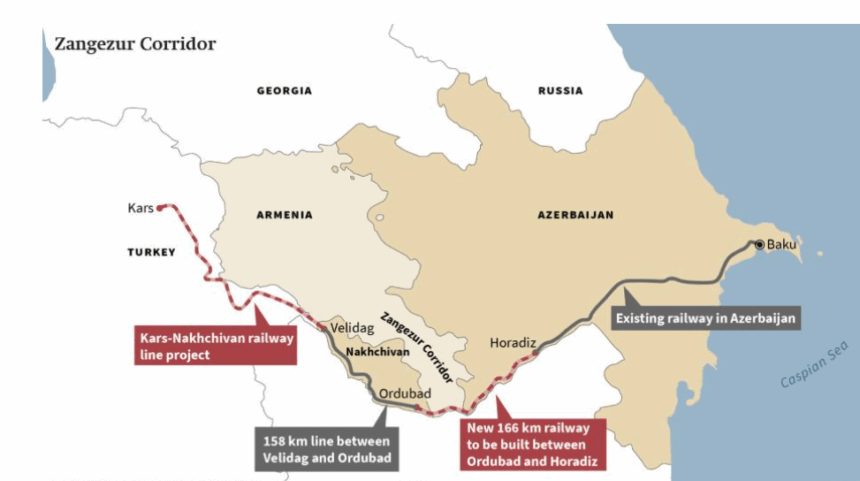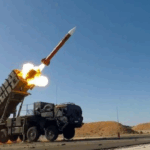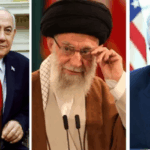Iran has announced that it has successfully prevented the establishment of the proposed Zangezur Corridor, a planned transport link connecting Azerbaijan to Turkey through Armenia’s southern Syunik province, which Tehran says would have posed serious security risks and undermined its regional position.
In an interview with Tasnim News Agency, Ali Akbar Velayati, senior foreign policy adviser to Supreme Leader Ayatollah Ali Khamenei, warned that the project was a “geopolitical maneuver disguised as a transport initiative,” aimed at weakening Iran and isolating Russia from the south.
Velayati argued that the corridor would have cut Iran’s only land access to Armenia and the Caucasus, thereby disrupting Tehran’s overland connections to Europe. He also claimed, without citing evidence, that U.S. President Joe Biden had acknowledged the corridor’s political momentum and infrastructure readiness.
The proposed route emerged following the 2020 Nagorno-Karabakh war and was referenced in Article 9 of the Russia-brokered ceasefire, which called for unblocking regional transport links. Azerbaijan has since interpreted this as support for a sovereign corridor across Armenia, connecting its mainland to the Nakhchivan exclave. Armenia, however, has firmly rejected this interpretation, insisting all transit must remain under Armenian jurisdiction.
Iran has repeatedly opposed the corridor, warning it would sever its strategic connection to Armenia and increase Turkish-Azerbaijani influence near its borders, especially in areas populated by Iran’s ethnic Azerbaijani minority.
Turkey continues to support the project. During a 2023 summit in Nakhchivan with Azerbaijani President Ilham Aliyev, Turkish President Recep Tayyip Erdoğan emphasized the corridor’s importance for regional connectivity and suggested alternative routes through Iranian territory if Armenia remains uncooperative. The 2021 Shusha Declaration also laid the groundwork for joint strategic infrastructure goals between Turkey and Azerbaijan.
Despite tensions, Iran and Armenia have strengthened energy cooperation. Armenian officials recently announced that a third high-voltage transmission line linking the two countries is 80% complete and expected to become operational in 2026. The line will triple current electricity exchange capacity, reinforcing the bilateral gas-for-electricity swap program.
Iran continues to frame the corridor as a threat to its sovereignty and regional security. Velayati stressed that Tehran’s ongoing presence in the South Caucasus is essential to maintaining regional balance and deterring foreign intervention.
Meanwhile, Azerbaijan and Turkey maintain that the corridor is vital for regional trade and transit. The project’s future remains uncertain, hinging on diplomatic negotiations and the competing interests of regional and global powers.







